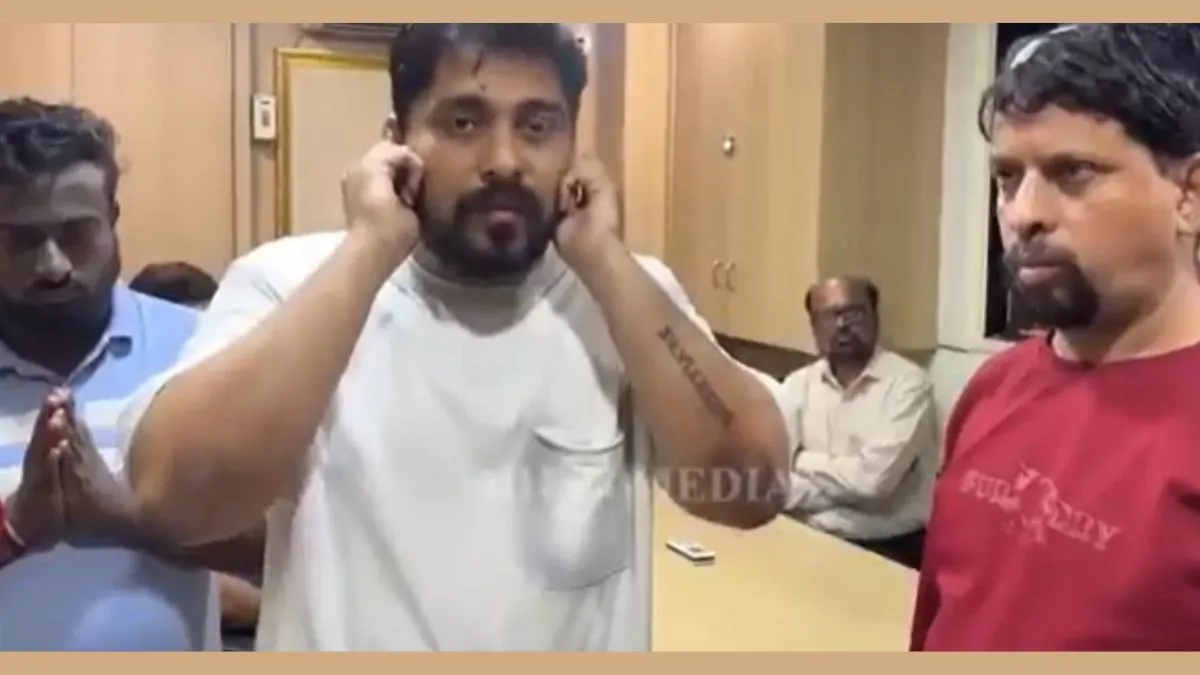- By Deeksha Gour
- Thu, 03 Jul 2025 08:21 PM (IST)
- Source:JND
Mumbai News: A small argument over a phone recharge in Maharashtra’s Thane district has now escalated into a wider language controversy, with a viral video drawing sharp criticism for allegedly humiliating non-Marathi shop staff.
The incident began on July 1 when Kiran Tanaji Sawant, 43, visited a local shop to recharge his phone. According to the shop staff, a technical issue prevented the recharge from going through. Sawant reportedly got angry and created a scene, leading to a scuffle between him and several employees. Sawant sustained minor injuries during the altercation.
He later filed a police complaint. A case was registered under sections of the Bharatiya Nyaya Sanhita related to causing hurt. Four shop staff were detained but released later with a legal notice.
However, the situation soon took a new turn. The matter was taken to the office of former Shiv Sena (UBT) MP Rajan Vichare. A video from the meeting has since gone viral on social media. In the clip, a man is heard telling one of the staff members, “Speak in Marathi. You hit a Marathi man, speak in Marathi.”
Another shocking incident from Thane – former MP Rajan Vichare (Uddhav faction) summoned traders to his office, got them beaten up by his men, forced an apology, and kept insisting they speak only in Marathi.
— Sumit Agarwal 🇮🇳 (@sumitagarwal_IN) July 3, 2025
Safety of traders cannot be compromised.
Requesting strict action,… pic.twitter.com/MKmKYqZP7p
The video further shows the accused shop staff approaching Sawant one by one, folding their hands, touching his feet and apologising. In response, Sawant slaps them on camera. They are then seen holding their ears and making a public apology, promising not to repeat their actions.
The video has triggered widespread outrage amid growing tensions over the Marathi vs non-Marathi debate. While some political leaders argue that those living in Maharashtra should respect and learn Marathi, others have strongly condemned the forced apology and public humiliation seen in the video.
Several leaders have appealed to Deputy Chief Minister Devendra Fadnavis to take action and ensure that language differences do not lead to public disorder or violence in the state.

